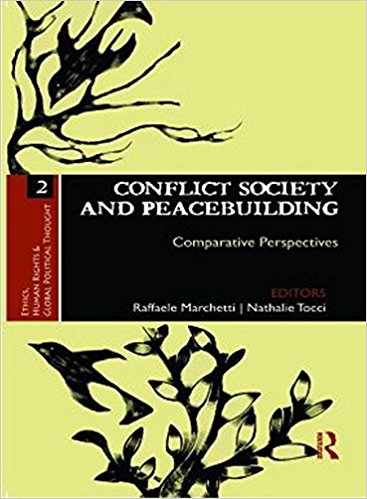Conflict Society and Peacebuilding: Comparative Perspectives is an edited volume of eleven essays, which explores the linkages between civil society, conflict and peace, drawing on empirical studies from regions in Asia, Africa, Latin America and Europe. The book opens with the recognition that civil society plays a significant role in building sustainable peace and security in contexts of armed conflict, particularly those driven by identity and located within states. The central space that it has come to occupy in peacebuilding discourse is based on the fact that individuals and groups, from a variety of backgrounds, have demonstrated their skills and expertise in this area. It is now recognized that official, government-to-government interactions between instructed representatives of states are insufficient in themselves to build sustainable peace in divided societies. In this context, the book seeks to delve deeper into how civil society and government actors can partner with one an-other to increase the efficacy of peace interventions and to initiate long-term processes of conflict transformation.

Role of Civil Society and Its Limitations
Manjrika Sewak
CONFLICT SOCIETY AND PEACEBUILDING: COMPARATIVE PERSPECTIVES by Raffaele marchetti Routledge, New Delhi, 2012, 321 pp., 795
June 2012, volume 36, No 6
